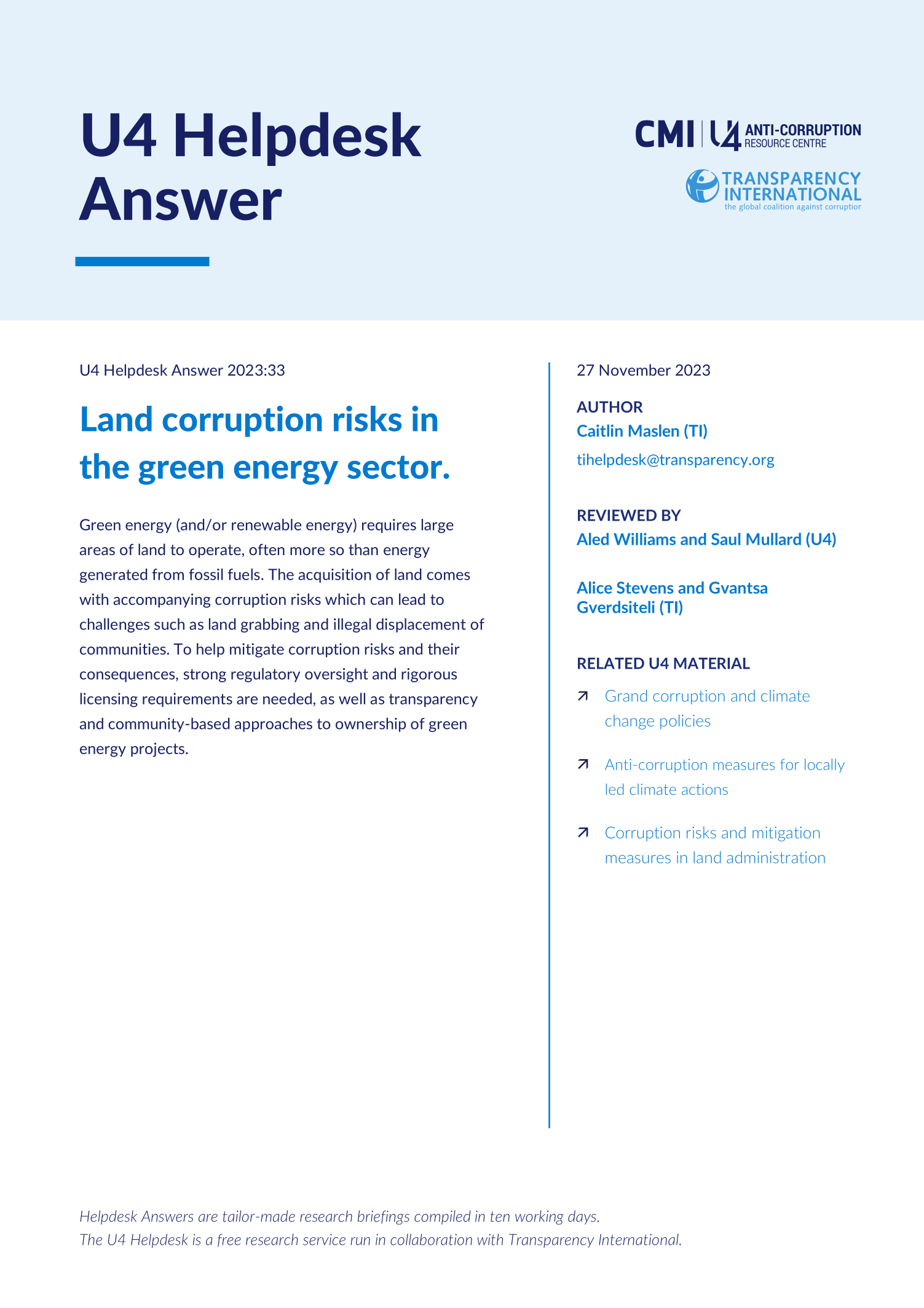Main points
- The green energy transition requires land for the extraction of critical minerals and for the development of farms and plants, such as wind farms and geothermal plants.
- This demand for land increases corruption risks such as bribery, embezzlement and a lack of compliance with legal frameworks and policies by project developers. These may lead to consequences such as land grabbing and the displacement of affected communities without fair compensation.
- These land corruption risks are aggravated by what is termed the “green resource curse”, where a body of literature considers green energy to be a new driver of the resource curse, which in turn may reduce overall state accountability.
- Interventions to reduce the likelihood of land corruption risks should not only focus directly on the corrupt acts but also focus on creating a more accountable and participatory sector where affected communities (particularly Indigenous peoples) have a voice and are considered equal among officials and experts in terms of decisions made about land use.



